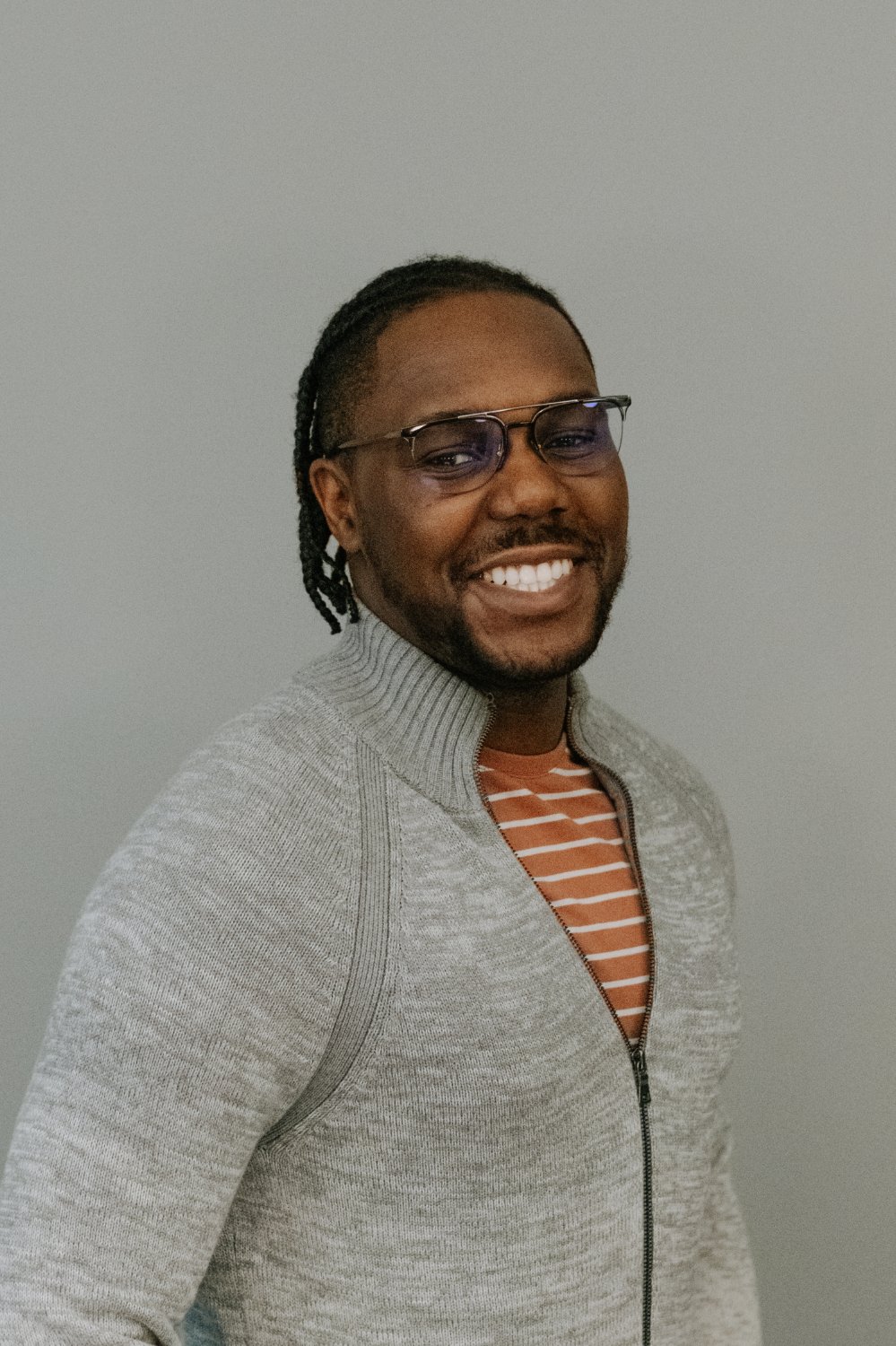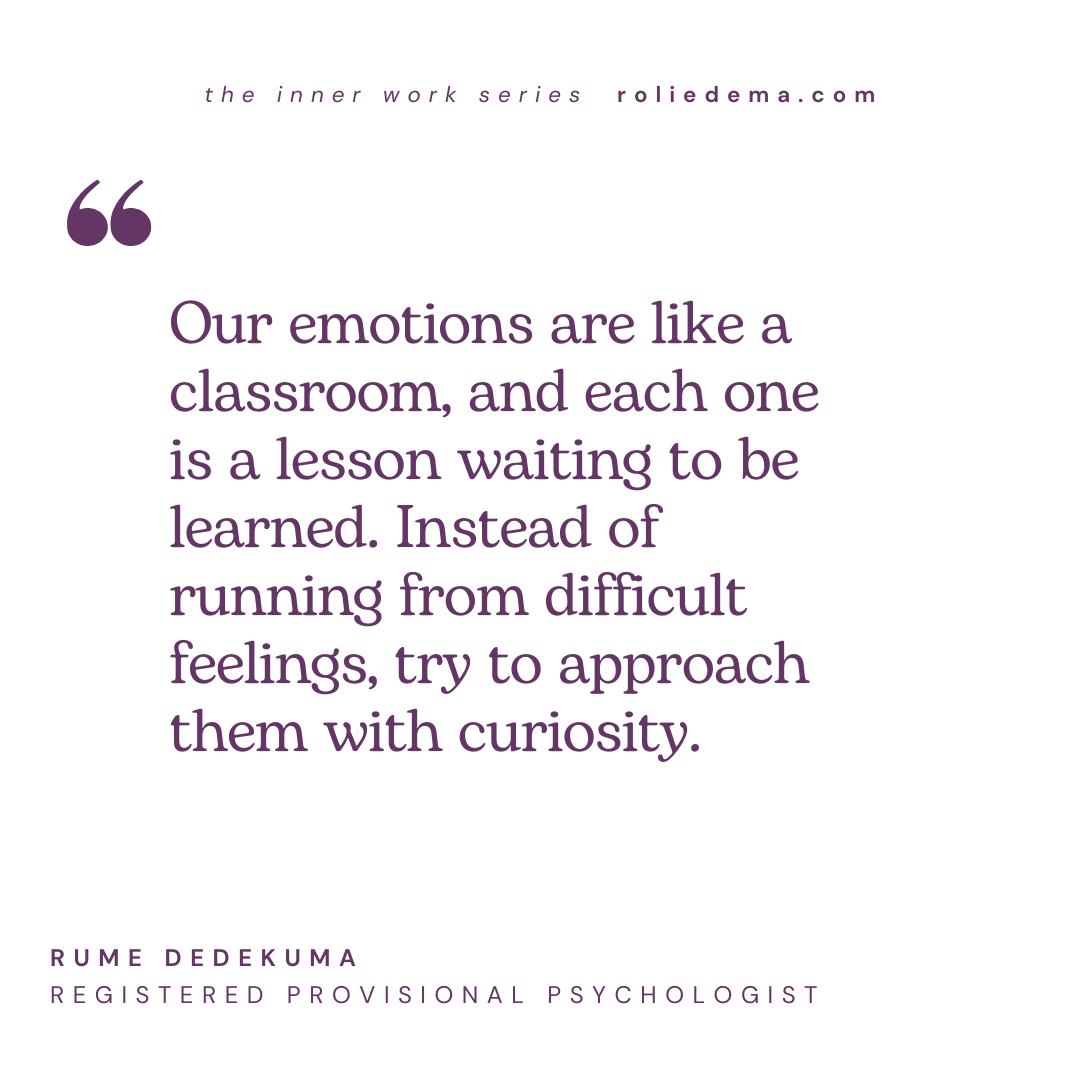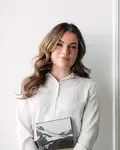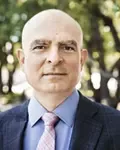- Home
- Think Pieces
- Interviews
- Inner Work with Rume Dedekuma
Inner Work with Rume Dedekuma | Your Story is Richer Than You Think
In this spotlight interview, therapist Rume Dedekuma shares valuable insights on how to be kind to ourselves while also holding ourselves accountable to grow.
Welcome to another edition of The Inner Work Series: What Therapists Want You to Know, a collection of short interviews that feature grounded wisdom from real therapists.
Today I'm honoured to feature Rume Dedekuma, a Registered Provisional Psychologist who uses a person-centered, trauma-informed, and integrative approach to help individuals move closer to their therapeutic goals.
Interview with Rume Dedekuma, Calgary Therapist

Q1. What’s one mindset shift you often help your clients make?
One of the most powerful mindset shifts I help clients make is moving from a zoomed-in to an aerial perspective.
Think about it: when we're struggling, it's easy to get lost in one tiny detail of our problem.
We develop a belief—maybe something we heard growing up, or a message from social media—that this one belief defines our whole story. It makes us feel stuck, like there are no other options.
But what if you could take a step back and see the bigger picture? I invite my clients to imagine they're in a helicopter, looking down on their life. From up there, you see the whole landscape—the valleys, the mountains, and all the paths in between.
You notice details you couldn't see from the ground, and suddenly, that one problem looks a lot smaller in the context of your entire journey.
This shift opens up new possibilities and helps you realize that your story is much richer and more complex than a single belief.
Q2. What’s one small habit or daily action that helps with emotional resilience?
Emotional resilience isn't about being tough or never feeling anything. I see it as a fluid, dynamic process.
It's about having the self-awareness to know what you need in any given moment. A great habit for building this is embracing the wisdom of Maya Angelou's quote: "Do the best you can until you know better. Then when you know better, do better."
This is a beautiful, compassionate approach to life. Your "best" will change depending on what's happening around you.
On a stressful day, your best might just be getting through it. On a good day, it might be trying a new, healthy habit.
This quote reminds us to be kind to ourselves while also holding ourselves accountable to grow and break free from old patterns that no longer serve us.
Q3. What’s one question you wish more people asked themselves (or their therapist)?
I wish more people would get curious and ask themselves, "What can I learn from this experience?"
Our emotions are like a classroom, and each one is a lesson waiting to be learned. Instead of running from difficult feelings, try to approach them with curiosity.
For instance, if an interaction leaves you feeling upset, your body might be trying to tell you something important about a boundary that needs to be set.
If you feel a strong emotion about a situation, it could be highlighting one of your core values.
The aim isn't to overanalyze everything but to take what you can from the experience and move forward.
Think of it as a course you've completed—you learn the material, then you move on to the next. Sometimes you might need to repeat a course, but the goal is always to grow.
A great question to ask your therapist is, "What is your theory on change and healing?" This helps you understand their therapeutic style and if it's the right fit for you at this point of your journey.
Q4. Recommend a favorite resource:
Finding the right resources can make a huge difference.
For those who can't access therapy or want to supplement their sessions, I always recommend the Centre for Clinical Interventions. They offer a fantastic collection of free, evidence-based workbooks on topics like anxiety, depression, and self-compassion.
The best part is they also have resources on how to support others, which is so important.
A quick but important note: not every resource will apply to you. It's best to take what works and leave what doesn't.
You can always review the resources with your therapist if you are uncertain about anything.
Another resource I love is the weekly newsletter from James Clear, the author of Atomic Habits. It's a short, insightful read that provides a moment of reflection and a dose of inspiration. It's a simple, low-effort way to add a bit of personal development to your week.
Q5. What’s one myth about therapy you’d love to bust?
One of the biggest myths I'd love to bust is the idea that "things aren't bad enough for me to need therapy."
We tend to think of therapy as a last resort, something you only do when you've hit rock bottom.
But what if we saw it more like preventive care? You don't wait for your car to break down to get an oil change, right? You don't wait to be sick to go for a yearly check-up.
Therapy can be a proactive tool to help you stay mentally healthy, build emotional skills, and navigate life's challenges before they become a crisis. It's about maintaining your well-being, not just fixing what's broken.
Find Rume Dedekuma
Enjoyed reading Rume's insights and answers to the above questions? Please visit Rume's website, aponicounselling.com and additional links below to connect with him and learn more about his work.
Rume's Links:
Website | Psychology Today Feature | Instagram
Thanks for reading! If you liked this content, share with a friend:
Recent Articles
-
5 Things to Stop Doing If You Want to Feel More Fulfilled
Feb 21, 26 05:35 PM
Are you unintentionally engaging in behaviours that leave you feeling depleted and empty? Here are 5 things to stop doing if you want to feel more fulfilled. -
5 Subtle Habits That Quietly Transform Your Life Over Time
Jan 25, 26 08:21 PM
Progress towards the things that matter isn't usually loud or dramatic. Here are 5 subtle habits that quietly transform your life over time. -
Inner Work with Marcus Lynn | How to Make Change More Realistic
Jan 19, 26 06:24 PM
In this spotlight interview, therapist Marcus Lynn explains how we can begin to see emotions as information and make change more realistic in our lives.









